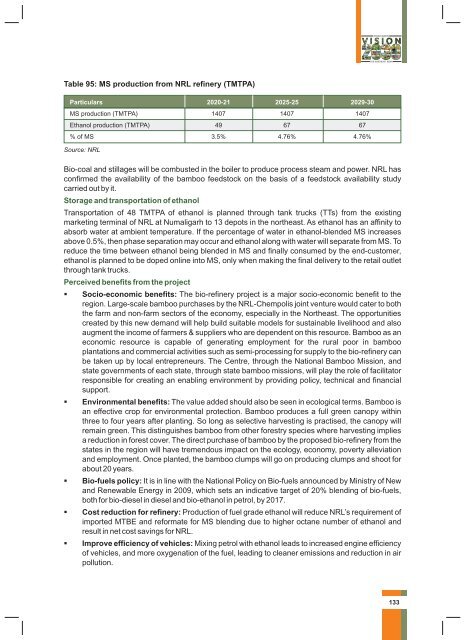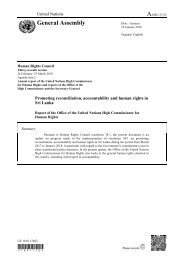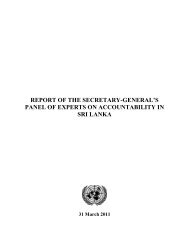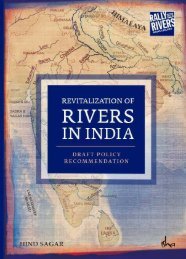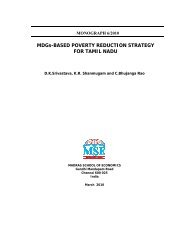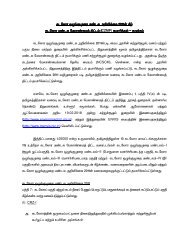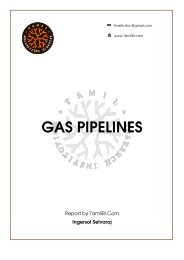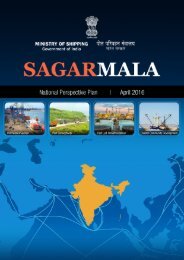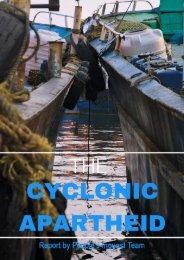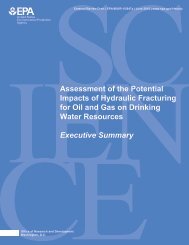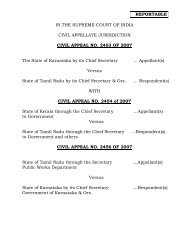Hydrocarbon Vision 2030 (ஹைட்ரோகார்பன் தொலைநோக்கு ஆவணம் 2030)
You also want an ePaper? Increase the reach of your titles
YUMPU automatically turns print PDFs into web optimized ePapers that Google loves.
Table 95: MS production from NRL refinery (TMTPA)<br />
Particulars 2020-21 2025-25 2029-30<br />
MS production (TMTPA) 1407 1407 1407<br />
Ethanol production (TMTPA) 49 67 67<br />
% of MS 3.5% 4.76% 4.76%<br />
Source: NRL<br />
Bio-coal and stillages will be combusted in the boiler to produce process steam and power. NRL has<br />
confirmed the availability of the bamboo feedstock on the basis of a feedstock availability study<br />
carried out by it.<br />
Storage and transportation of ethanol<br />
Transportation of 48 TMTPA of ethanol is planned through tank trucks (TTs) from the existing<br />
marketing terminal of NRL at Numaligarh to 13 depots in the northeast. As ethanol has an affinity to<br />
absorb water at ambient temperature. If the percentage of water in ethanol-blended MS increases<br />
above 0.5%, then phase separation may occur and ethanol along with water will separate from MS. To<br />
reduce the time between ethanol being blended in MS and finally consumed by the end-customer,<br />
ethanol is planned to be doped online into MS, only when making the final delivery to the retail outlet<br />
through tank trucks.<br />
Perceived benefits from the project<br />
Socio-economic benefits: The bio-refinery project is a major socio-economic benefit to the<br />
region. Large-scale bamboo purchases by the NRL-Chempolis joint venture would cater to both<br />
the farm and non-farm sectors of the economy, especially in the Northeast. The opportunities<br />
created by this new demand will help build suitable models for sustainable livelihood and also<br />
augment the income of farmers & suppliers who are dependent on this resource. Bamboo as an<br />
economic resource is capable of generating employment for the rural poor in bamboo<br />
plantations and commercial activities such as semi-processing for supply to the bio-refinery can<br />
be taken up by local entrepreneurs. The Centre, through the National Bamboo Mission, and<br />
state governments of each state, through state bamboo missions, will play the role of facilitator<br />
responsible for creating an enabling environment by providing policy, technical and financial<br />
support.<br />
Environmental benefits: The value added should also be seen in ecological terms. Bamboo is<br />
an effective crop for environmental protection. Bamboo produces a full green canopy within<br />
three to four years after planting. So long as selective harvesting is practised, the canopy will<br />
remain green. This distinguishes bamboo from other forestry species where harvesting implies<br />
a reduction in forest cover. The direct purchase of bamboo by the proposed bio-refinery from the<br />
states in the region will have tremendous impact on the ecology, economy, poverty alleviation<br />
and employment. Once planted, the bamboo clumps will go on producing clumps and shoot for<br />
about 20 years.<br />
Bio-fuels policy: It is in line with the National Policy on Bio-fuels announced by Ministry of New<br />
and Renewable Energy in 2009, which sets an indicative target of 20% blending of bio-fuels,<br />
both for bio-diesel in diesel and bio-ethanol in petrol, by 2017.<br />
Cost reduction for refinery: Production of fuel grade ethanol will reduce NRL’s requirement of<br />
imported MTBE and reformate for MS blending due to higher octane number of ethanol and<br />
result in net cost savings for NRL.<br />
Improve efficiency of vehicles: Mixing petrol with ethanol leads to increased engine efficiency<br />
of vehicles, and more oxygenation of the fuel, leading to cleaner emissions and reduction in air<br />
pollution.<br />
133


